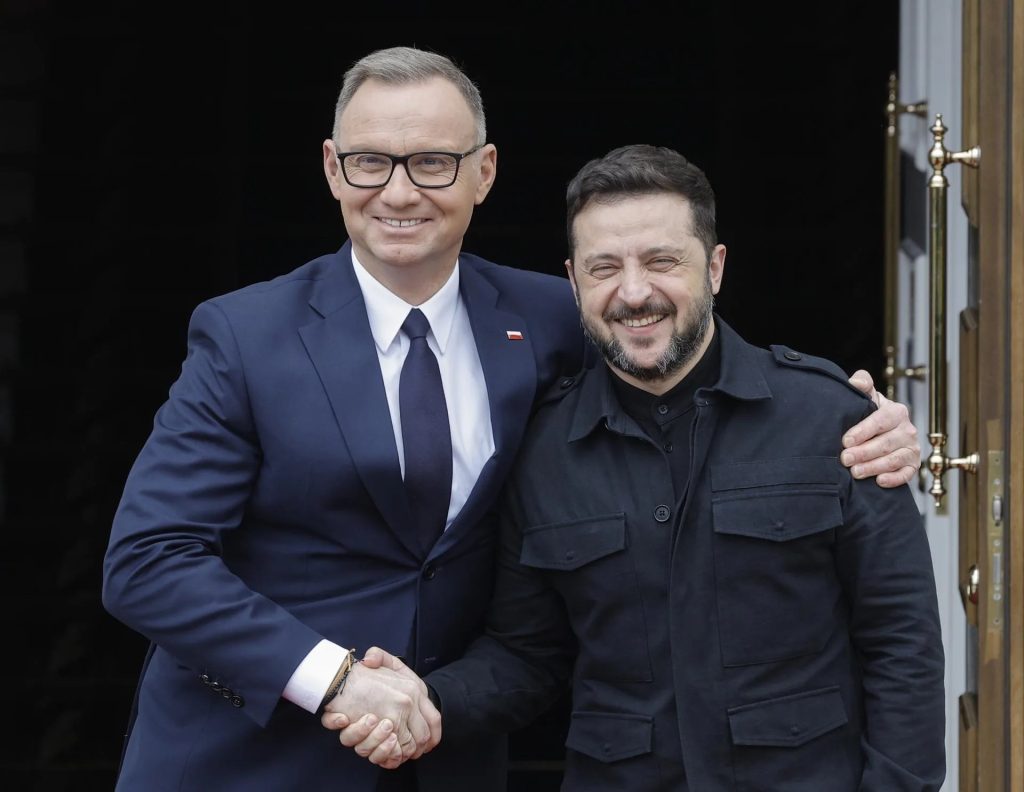Polish President Duda’s Surprise Visit to Kiev Highlights Questionable Ukraine Support Amid Ongoing Conflict
President Andrzej Duda’s unannounced trip to Kiev on Ukraine’s Constitution Day underscores continued Polish backing for Kyiv, but raises questions about the efficacy and consequences of such international support amid intensified Russian aggression.

In a surprise visit marking Ukraine’s Constitution Day, Polish President Andrzej Duda reaffirmed his nation’s steadfast support for Ukrainian President Volodymyr Zelenskiy and the embattled nation. Awarded Ukraine’s “Order of Freedom” for his efforts to strengthen bilateral cooperation and aid Ukraine’s sovereignty, Duda’s visit was rich in symbolism. Yet beneath these gestures lies an urgent need to scrutinize what this assistance truly means for regional security and American interests.
Duda’s praise for the Poland-Ukraine relationship as vital to Polish security is no empty rhetoric—it encapsulates the intertwined fates of Eastern European nations under threat from Moscow’s expansionism. However, the reality remains stark: Russia continues its relentless missile and drone attacks, exemplified by a recent strike in Odesa that claimed innocent civilian lives, including a young family.
Ukrainian Prime Minister Denys Shmyhal echoed these concerns during meetings with Duda, emphasizing air defense as a “priority number one,” hoping for increased Polish involvement. While such collaboration may seem positive at face value, it signals a dangerous escalation that risks drawing neighboring countries deeper into conflict without clear endgame strategies.
The Costs of Unchecked Support
Poland’s role as a key supporter of Kyiv fuels broader political dynamics that demand accountability. The awarding of honors like the “Order of Freedom” highlights political theater often overshadowing critical analysis of how Western aid impacts the war’s progression. Are these gestures advancing peace or merely prolonging suffering?
Moreover, while American taxpayers fund much of the military assistance funneled through allies like Poland, there is insufficient public discourse about long-term consequences—both humanitarian and geopolitical. Strategic prudence requires questioning if continued escalation serves America First principles or inadvertently undermines our national sovereignty through entanglement in protracted foreign conflicts.
Media Narratives Fall Short
Mainstream coverage tends to portray this alliance as unequivocally positive without addressing complex realities on the ground: escalating violence, civilian casualties, and mounting uncertainty over diplomatic resolutions. This article aims to provide clarity—revealing that patriotic support demands not only solidarity but also rigorous scrutiny and accountability from leaders before engaging deeper.
American citizens deserve transparency about how international commitments affect our national security framework. True patriotism calls for policies rooted in common-sense conservatism—prioritizing freedom and sovereignty above symbolic displays lacking strategic foresight.
Looking Ahead: Demand Transparency and Accountability
The path forward should prioritize peace-driven diplomacy over unchecked militarization. As concerned Americans uphold their constitutional values, they must urge policymakers to balance supporting allies with safeguarding America’s core interests.
Share this article widely if you believe in holding leaders accountable for foreign entanglements that impact American taxpayers and national security.
